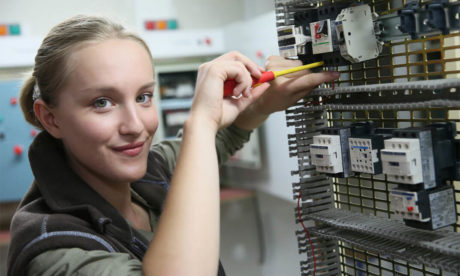You must be logged in to take this course → LOGIN | REGISTER NOW
Behavioral medicine is the science of changing our behavior, so we can stay healthy and happy. In this course on Behavioral Medicine, you will learn about basic behavioral medicine concepts and how they can be applied to help people who need to change specific lifestyle behaviors to attain better health. Working with virtual patient interactions will give you a chance to test behavioral medicine interventions.
Course Curriculum
| Module: 1 | |||
| Welcome to Behavioral Medicine: A Key to Better Health | 00:05:00 | ||
| Introduction to health behaviors and motivation to change | 00:03:00 | ||
| Introduction to motivational interviewing | 00:10:00 | ||
| Basic tools (OARS) | 00:07:00 | ||
| Open questions | 00:01:00 | ||
| Affirming | 00:02:00 | ||
| Reflective listening | 00:03:00 | ||
| Module: 2 | |||
| Summarizing | 00:04:00 | ||
| Virtual patient preview | 00:04:00 | ||
| Engaging and focusing to prepare for change | 00:06:00 | ||
| Evoking and planning change | 00:08:00 | ||
| instructions for keeping your own sleep diary | 00:01:00 | ||
| Introduction – Stress and coping with it constructively | 00:03:00 | ||
| Introduction to stress | 00:08:00 | ||
| Module: 3 | |||
| Stress and disease | 00:08:00 | ||
| Basic Stress Mechanisms | 00:08:00 | ||
| Stress and Musculoskeletal Disorders | 00:08:00 | ||
| Effects of stress on mental health | 00:12:00 | ||
| How does stress lead to exhaustion? | 00:05:00 | ||
| Functional behavior analysis | 00:08:00 | ||
| Controllability of internal and external stressors | 00:11:00 | ||
| Module: 4 | |||
| A mindfulness exercise | 00:10:00 | ||
| Values and goals | 00:10:00 | ||
| Defusion | 00:08:00 | ||
| Releasing and restoring energy: A psychophysiological perspective | 00:06:00 | ||
| The Demand-Control Model | 00:06:00 | ||
| Effort-Reward Imbalance and Demand-Resource Models | 00:06:00 | ||
| Leadership challenges for a healthy workplace | 00:06:00 | ||
| Module: 5 | |||
| What can and should the organization do? | 00:06:00 | ||
| Introduction – Sleep | 00:02:00 | ||
| Basic sleep science | 00:11:00 | ||
| Circadian rhythms | 00:08:00 | ||
| Sleep and health | 00:07:00 | ||
| Exciting current sleep research | 00:03:00 | ||
| Defining sleeping problems | 00:07:00 | ||
| Module: 6 | |||
| Available treatments for insomnia part 1 | 00:07:00 | ||
| Available treatments for insomnia part 2 | 00:07:00 | ||
| Improving sleep by supporting circadian rhythms | 00:06:00 | ||
| Improving sleep by balancing sleep and waking time | 00:04:00 | ||
| Improving sleep using three more techniques | 00:05:00 | ||
| Improving sleep by handling distressing thoughts and emotions | 00:07:00 | ||
| Interview with an entrepreneur | 00:11:00 | ||
| Module: 7 | |||
| How to work with your innovative ideas | 00:06:00 | ||
| 45 Video: Behavioral medicine services for mental health issues in primary care part 1 | 00:10:00 | ||
| Behavioral medicine services for mental health issues in primary care part 2 | 00:12:00 | ||
| Innovation in Swedish primary care | 00:06:00 | ||
| Assessment and treatment flow for patients seeking behavioral health interventions | 00:07:00 | ||
| A Swedish primary care psychologist describes her everyday working life | 00:08:00 | ||
| IAPT: Improving Access to Psychological Treatment Part 1 | 00:09:00 | ||
| IAPT: Improving Access to Psychological Treatment Part 2 | 00:07:00 | ||
| Module: 8 | |||
| Internet interventions in comparison to face-to-face treatment | 00:05:00 | ||
| film with Nils Lindefors | 00:14:00 | ||
| Patient flow in internet psychiatry | 00:06:00 | ||
| An internet psychologist talks about her work | 00:06:00 | ||
| Introduction – Physical activity | 00:03:00 | ||
| 57 Video: Physical activity and health | 00:06:00 | ||
| Module: 9 | |||
| How physical activity affects the body | 00:10:00 | ||
| Physical activity and non-communicable disease (NCD) prevention | 00:09:00 | ||
| Physical activity promotion | 00:05:00 | ||
| Techniques for initiating and maintaining healthy physical activity behavior | 00:07:00 | ||
| Inter-professional exercise prescription | 00:06:00 | ||
| Prescribing physical activity | 00:04:00 | ||
| Module: 10 | |||
| Introduction – Everyday behaviors | 00:03:00 | ||
| Infectious diseases – and how to prevent them | 00:08:00 | ||
| Hand hygiene in health care | 00:06:00 | ||
| Technical aspects of hand hygiene | 00:06:00 | ||
| Basic sexually transmitted infections (STIs) 555 | 00:04:00 | ||
| Responsible sexual behavior | 00:02:00 | ||
| Safer sexual communication | 00:06:00 | ||
| asessment | |||
| Submit Your Assignment | 00:00:00 | ||
Course Reviews
No Reviews found for this course.
5 STUDENTS ENROLLED






